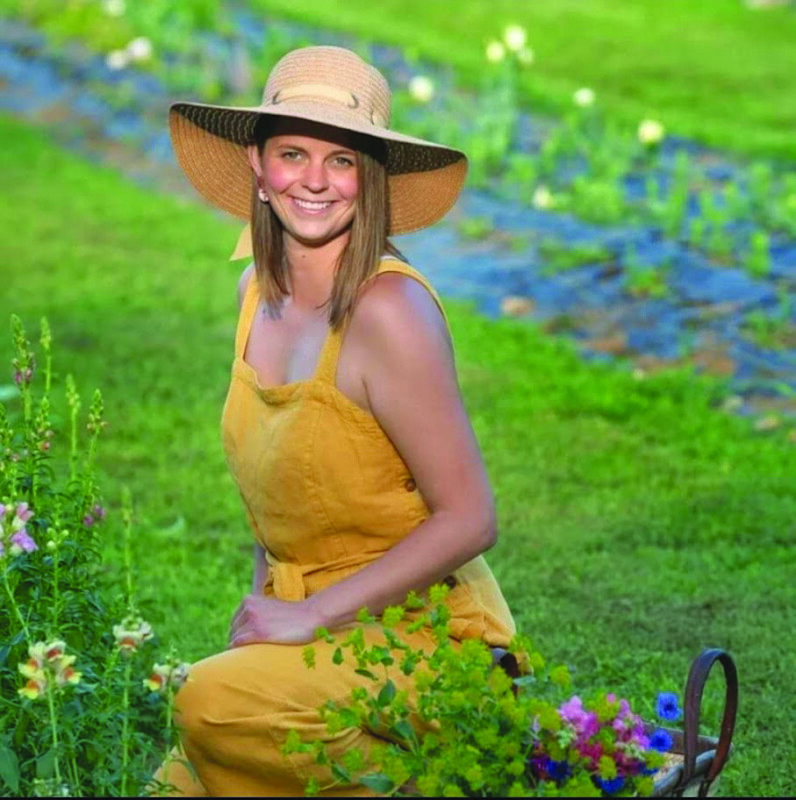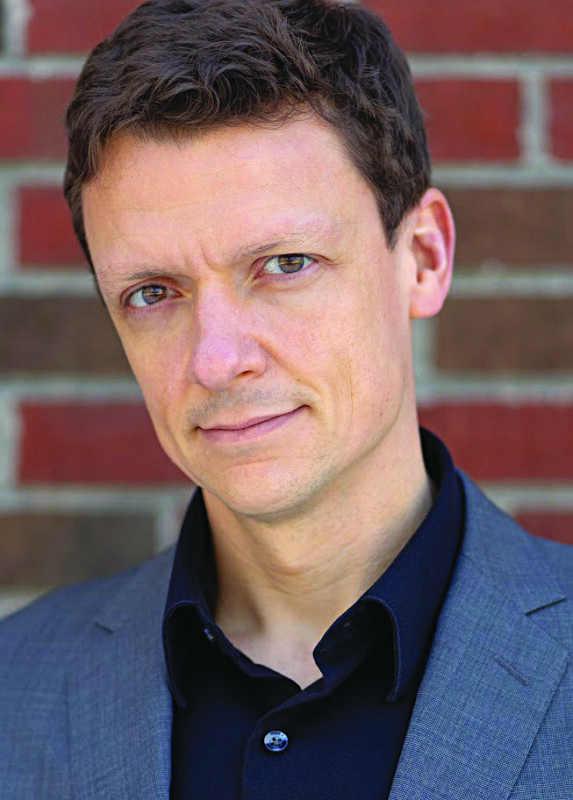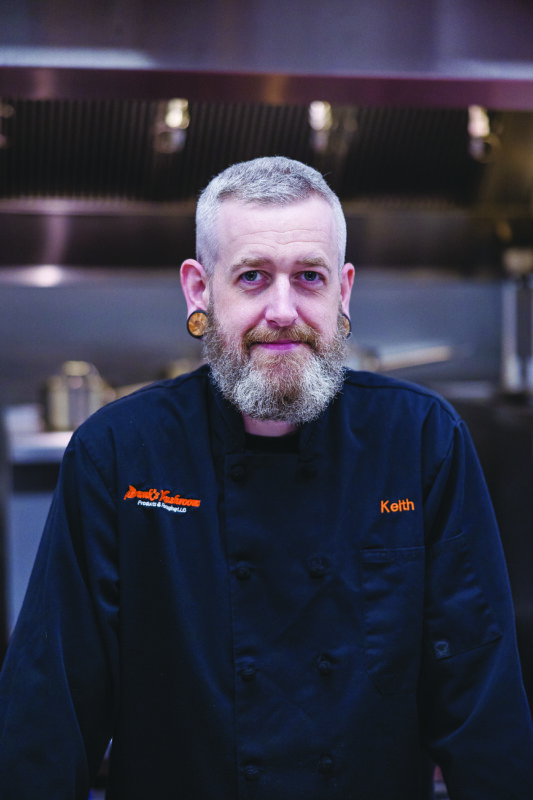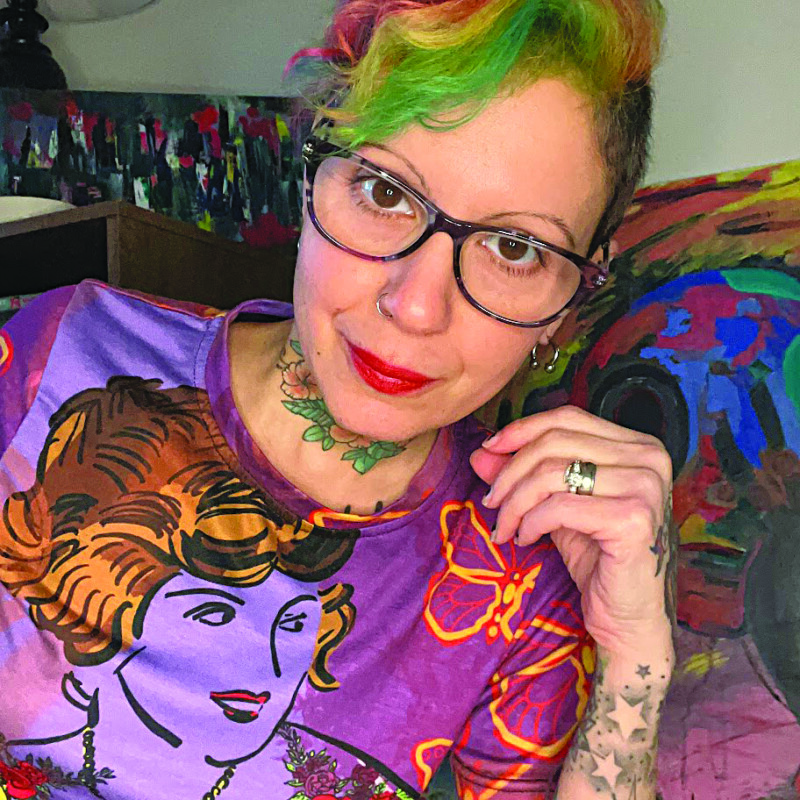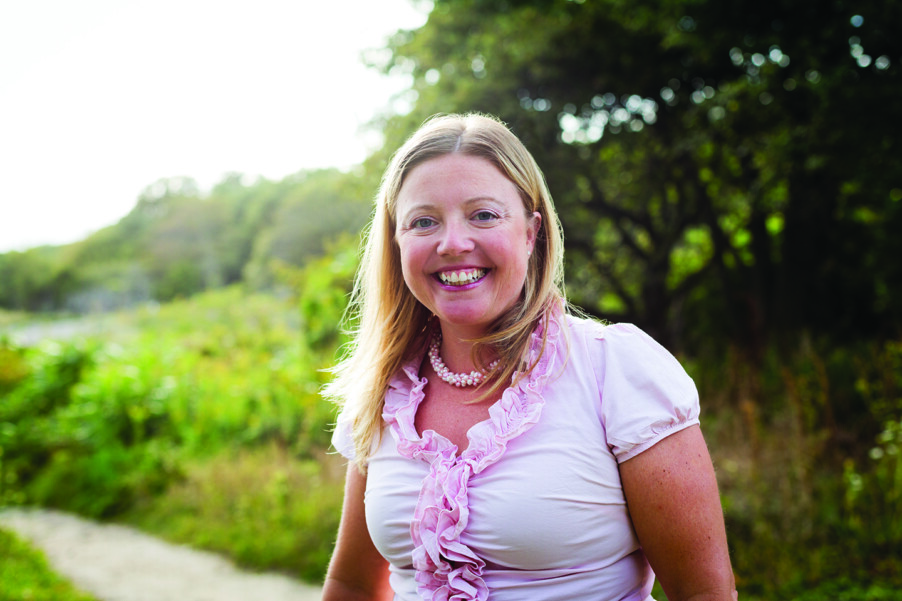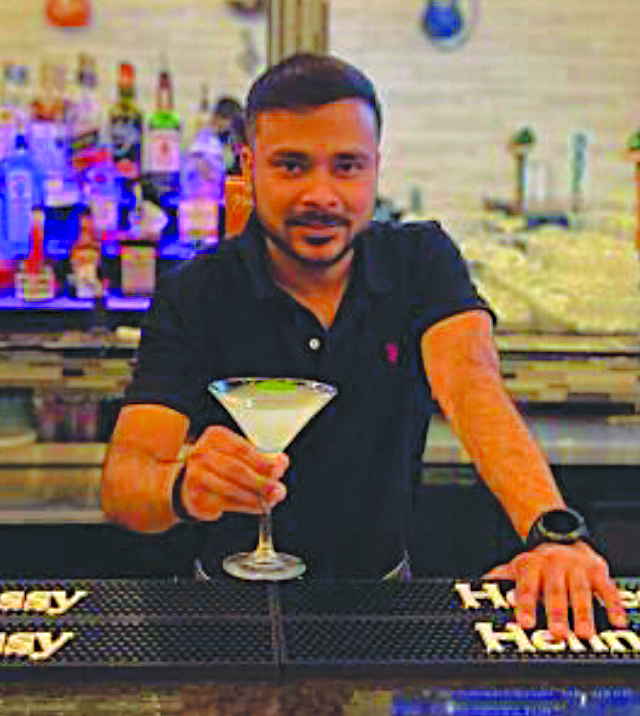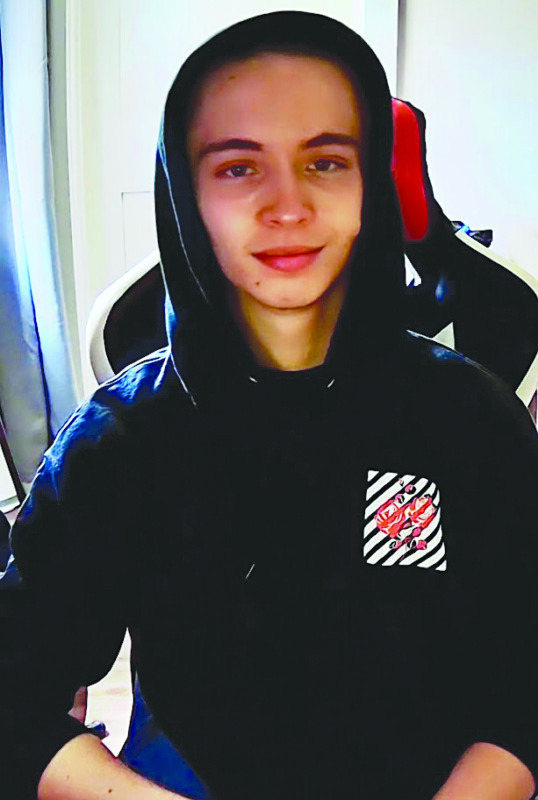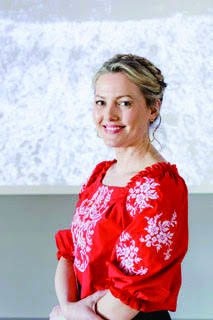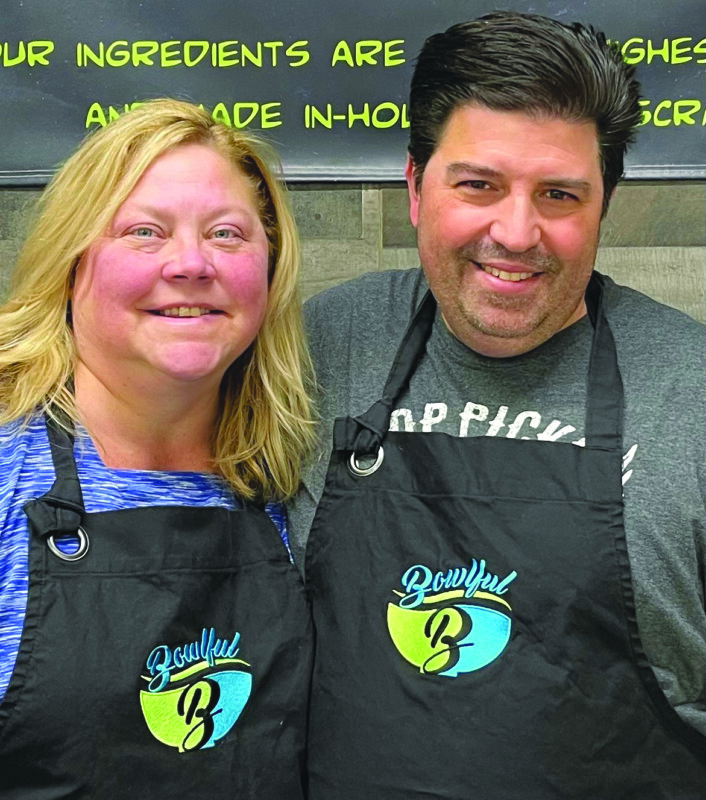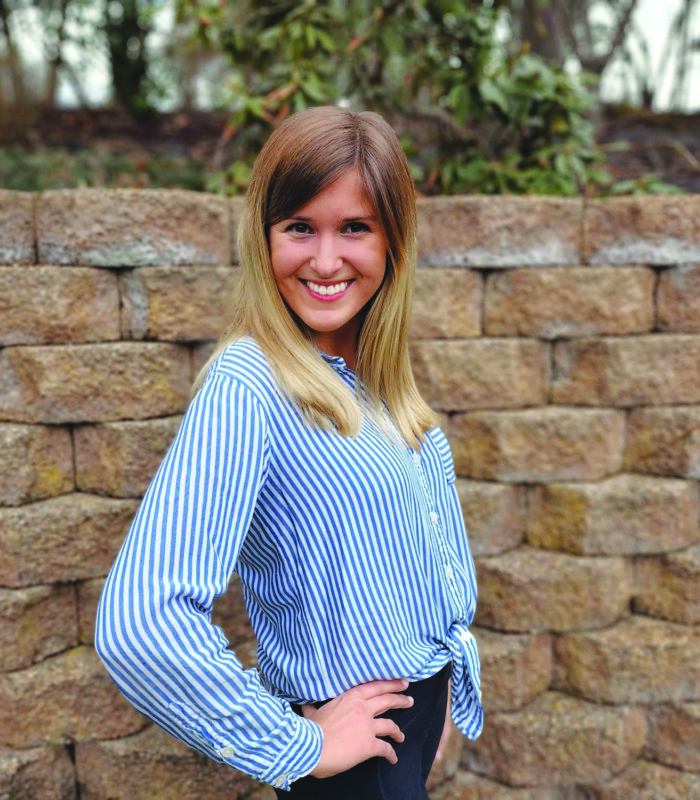Emily Shellenberger
Flower farmer and florist
Emily Shellenberger works as a farmer and florist at Live Bee, or Die Farm, a fresh cut flower farm and apiary in New Boston.
Explain your job and what it entails.
My job is a bit unusual, and I wear a few different hats. I’m what is referred to as a farmer/florist. I currently farm about two acres of cut flowers in New Boston, [where] I personally grow about 90 percent of the seedlings every year on site. I use these flowers to design for everyday occasions, weddings and events. This year we officially have been given approval to start hosting weddings on the farm, so, on top of my duties in the field, I’ll be helping to design and manage events held on site.
How long have you had this job?
I’ve been farming for the past five years and designing for four years.
What led you to this career field and your current job?
My family and I started a pollinator project on their business land. From there, I fell in love with growing flowers and decided to expand into farming. I took a flower farming course online, but have mostly been a self-taught farmer. As time went on, I kept growing and adapting the business, which led me to take floral design courses. I now very purposely grow varieties of cut flowers that I can use for wedding and event design, which gives me the ability to provide fresh and unique offerings to my clients.
What kind of education or training did you need?
I graduated with a degree in environmental geology with the intention of working on reclamation projects. My degree has helped with the farming side of things, but, minus the flower farming course and a few floral design courses, I’ve mostly been self-taught. I’ve spent hours and hours researching farming and design, and, as it’s ever adapting, I’ve learned a lot by taking calculated risks and trying new things.
What is your typical at-work uniform or attire?
If I’m working on the farm, it’s pretty informal. As you can imagine, I’m covered in dirt most days. I’ll dress more professionally if I’m meeting with clients or designing for weddings, though.
How has your job changed over the course of the pandemic?
There has been a huge influx of people wanting to get married or moving their weddings forward over the past few years. I’ve had to work with my brides to reschedule their dates, and have also had to scale a few weddings back to accommodate Covid restrictions.
What do you wish you’d known at the beginning of your career?
How to manage time more wisely. During my season, it can get a bit overwhelming juggling all of my different duties. This year, I’ve made a better effort to try and come up with a more secure schedule so I don’t suffer from burnout.
What do you wish other people knew about your job?
Farming is not easy and depends on so many variables. I’ve learned over the years to find backup supplies in case I suffer a crop failure or something doesn’t bloom on time. It can be a bit stressful, but there are ways to make it work, and my clients have been very understanding.
What was the first job you ever had?
I started working at my family business at a young age, but my first job outside of that was as a farm hand on a horse farm.
What’s the best piece of work-related advice you’ve ever received?
Dedication and persistence are the key to success.
Five favorites
Favorite book: I’m currently reading Discovering Dahlias by Floret Farm.
Favorite movie: Inception
Favorite music: I tend to gravitate toward alternative and folk.
Favorite food: I’ve been getting into sushi, which I never thought would be something I actually would like.
Favorite thing about NH: New Hampshire is such a gem of a state. There’s so much to do here, and even though I’ve lived here my whole life I’m still discovering new things.
Featured photo: Emily Shellenberger. Courtesy photo.

